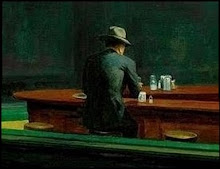Not in Our Genes: Biology, Ideology and Human Nature is a 1984 book authored by evolutionary geneticist Richard Lewontin, neurobiologist Steven Rose and psychologist Leon J. Kamin in which they criticize many controversial areas of science, particularly sociobiology, biological determinism and the reductionism of the gene-centric view of evolution.
Recurring themes and arguments within the book include the following:
- The authors emphasize that scientists are never free from biases or political and cultural influences.
- Reductionism and biological determinism are intellectually linked to a range of current debates in science, including sociobiology, the gene selectionist view of evolution, drug-centred psychiatry, and a general belief in the heritability of behavioral traits.
- Many of these trends in science are regarded as convenient rallying points for a conservative political agenda.
- The distinction between the political aspect of scientists and the factual aspect of science is strongly emphasized, and the authors assert that while ideology may inspire determinist science, it should be judged upon the facts.
- The conflation of "population norms" with "human nature" is criticized.
- Twin studies are extensively critiqued, and argued to have almost universally flawed methodologies.
- Adoption studies are also critiqued, and the unusual nature of adoptive parents as a study group is emphasized.
- A reductionist strand of thought is identified and critiqued in psychology, particularly with reference to the use of drugs.
- The theoretical basis of sociobiology (now evolutionary psychology) is heavily critiqued and charged with reification, a reliance on "Just-So" stories, gene-selectionism, and undue adaptationism.
- A "dialectical" approach to "human nature" is encouraged, in which a wide range of fields are taken into account and integrated appropriately. They regard the "nature vs nurture" label given to the debate as misleading.
Criticism
A review by Richard Dawkins in New Scientist was particularly scathing, accusing the authors of having a "bizarre conspiracy theory of science", accusing them of lies and idiocy, and concluding that it is a "silly, pretentious, obscurantist and mendacious book".In his 2002 book The Blank Slate, Steven Pinker accused Lewontin et al. of creating a straw man of the discipline of sociobiology and being biased by left-wing politics
Rebuttal de Richard Dawkins
dc








